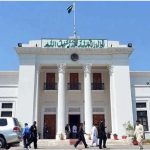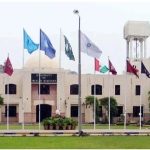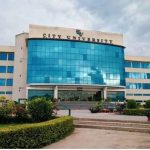Islamabad : Around 50 experts, young researchers, and practitioners from various think tanks, NGOs, policy institutions, and universities converged in town to participate in the ‘Young Researchers Convention on “Reconstruction of Pakistan’s National Security Roadmap” here on Thursday.
Organized by the Center for Strategic and Contemporary Research (CSCR), the event featured a discussion on three themes—’Regional Connectivity as a Stabilizer of Neighborly Ties,’ ‘New Dimensions of Security, and Climate Action,’ and ‘Sustainable Development Strategies.’
Inaugurating the convention, CSCR’s Executive Director Mr.Anas Abdullah said, the motivation behind the convention was to cater to the brightest young Pakistani thought-leaders and chart a direction, using their suggestions to find the confluence of the economic, climate, and social domain with the larger national security paradigm. Mr.Hassan Akbar from the National Security Division, Ms. Ammara Durrani from UNDP, and Dr. Ahmed Waqas Waheed from the Center for International Peace and Stability, NUST, shared their thoughts before the opening of three working committees on the respective themes.
Hassan Akbar stated that even though Pakistan has developed security policies on different themes, it is the first time that the country has developed a comprehensive National Security Policy. He said it has taken Pakistan almost seven years to formulate this umbrella document, with all stakeholders and institutions on board. He informed that economic, human, and cyber security are the key focus of Pakistan’s National Security policy.
Ammara Durrani argued that while talking about the ideas and concepts, emphasis must also be placed on hard science to formulate policies and responses. She stressed the importance of women’s inclusion in the economy and argued that Pakistan’s policy documents need to be in line with global human development.
Dr Ahmed Waqas stressed the importance of indigenous knowledge production in Pakistan and the need to place less reliance on discourse constructed in foreign media and publications.
Following remarks by the open plenary, working committees were commenced. The panelists of the working committee on ‘Regional Connectivity as the Stabilizer of Neighborly Ties’ discussed the importance of effective governance in Pakistan for economic and political sustainability to enhance regional connectivity in the region. Panelists argued that our institutions need to analyze supply and demand factors and train citizens, accordingly. They also discussed the need to create partnerships with local industries across the region to enhance economic growth.
The working committee on ‘New Security Dimensions’ discussed the importance of adopting an integrated approach to holistic policymaking and implementation that balances both traditional and non-traditional security threats. The panelists suggested the need for institutional demarcation on national security issues to avoid overlaps at the institution level and to develop a cyber strategy and digital literacy roadmap. They also recommended the formation of pro-active national strategies on Artificial Intelligence and big data so that a contingency plan be prepared, and the need to prioritize water security and management







